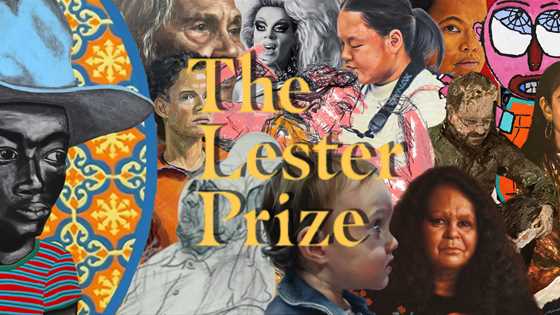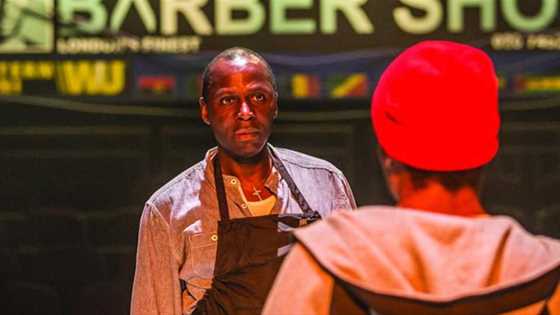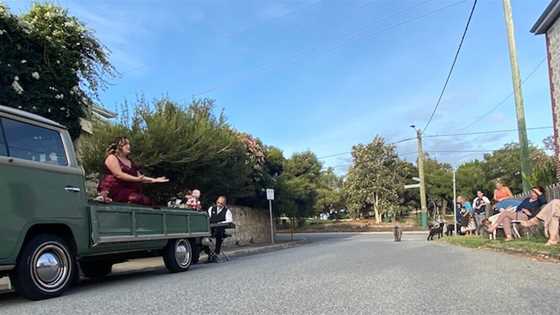Perth-born journalist and broadcaster Geraldine Doogue’s new book gets to the heart of what it means to be a woman in power in Australia. A testament to our times, the book has also attracted its share of critics.
It was a throwaway line made during a football game that prompted Geraldine Doogue to write her new book, The Climb: Conversations with Australian Women in Power. "At the end of the day, when I go home and pull up the drawbridge, I want to be able to recognise myself," then-Prime Minister Julia Gillard had said to Geraldine. It led the writer to muse on the nature of female leadership and identity, and from that, to question why there are still so few women in positions of power. She then sought answers from leading women themselves, interviewing 14 women in fields as diverse as religion, politics, education and the armed forces. The resulting book concludes that, though there is no single model for women in leadership, aspiring women must be able to identify with current female leaders. "It's a crossover, going from being led to being a leader," Geraldine says. "All the research shows it's a very big identity shift." Asking the women to share the good, the bad and the indifferent from their experiences, Geraldine aimed to show young women that relatable female role models exist, and to encourage a younger generation to envisage themselves as leaders.
The book received its harshest criticism from that very audience – from Emily Maguire, an acclaimed 20-something novelist writing for The Sydney Morning Herald. She dismissed Geraldine as "out of touch," labelling the book as another how-to for aspiring women leaders that failed to address the real issue – that more men need to step into supporting roles.
Emily made a case against the book's relevance in an area already saturated with advice for women. "In terms of societal change, yet more advice to women about how they should act and adapt is the last thing we need," she wrote. "We've had decades of it."
Contrasting The Climb with another book on the issue, The Wife Drought by the ABC's chief political online writer Annabel Crabb, Emily claims the conversation needs to move to the role of men, not women: "If we are serious about equality, we should stop worrying so exclusively about women's ease of access to the workplace and start worrying more about men's ease of egress from it," she writes, quoting Annabel.
Geraldine takes the criticism with characteristic good grace, describing the opportunity to be reviewed with such thoroughness as a privilege.
"(Emily) has obviously thought about (the subject) a lot," she tells Scoop, adding that she was thrilled to be reviewed in the context of The Wife Drought.
"I think I disturbed Emily because she didn't want to think about compromising," Geraldine says. "She thought, like a lot of young women, 'Oh, surely it's not necessary; surely you don't have to think about the broader issue'. But it is, and there's no use denying it." A mother herself, Geraldine says she can see the differences between her own generation and those that followed. "I think there's a sense of entitlement," she says. "People think if they're talented enough and educated enough and driven enough, well, it's going to be enough. But it isn't. I'm not saying this is dreadful, that we're never going to get there – you just need to put words to it. I think the effort is to name some of these things in non-threatening ways so that we may be aware of them in our own lives."
She cites the area of crisis leadership as an example, in which men retain a traditonal edge over women. "Men can throw out the rule book and start again, and inspire people sufficiently to come along with them as they go on this new journey," she says. "That's transformational leadership."
If women observe themselves and others with a little humility, they can become aware of their weaknesses, build on their strengths, and challenge themselves to improve, she says.
"I think that watching other well-rounded, satisfied women is a powerful drawcard," she says. "It's an invitation for other women to explore possibilities within themselves."
But it is important for aspiring younger women to be able to identify with their older counterparts in leadership positions. And this, she says, was her reason for writing the book – to provide young women with both a tome full of potential role models, and a mirror.
"I want young women to look on at the older women around them and actually want to be like them," she says. "It's important for older women to reveal more of themselves – their trials and their successes – so that younger women may look at them and think, 'I can see myself there'."


.jpg)






